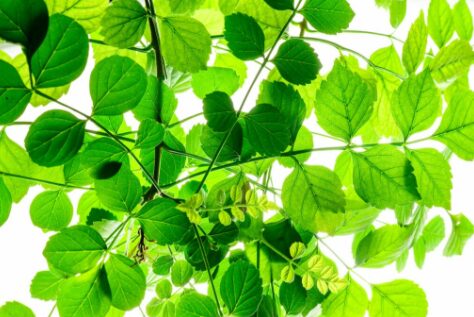In the realm of plant biochemistry, phytosterols play a vital role in maintaining cellular structure and function. Among these phytosterols lies a group of compounds known as fitosterina, which bear striking similarities to human cholesterol in both structure and function. Let’s delve deeper into the world of fitosterina to understand their significance and potential benefits.
What Are Fitosterina?
Fitosterina, also referred to as phytosterols or plant sterols, are naturally occurring compounds found in the cell membranes of plants. Structurally, they closely resemble cholesterol, a lipid molecule found in animal cell membranes. However, unlike cholesterol, which is predominant in animal tissues, fitosterina are abundant in plant-based foods.
Structure and Function
Fitosterina share a similar chemical structure to cholesterol, featuring a steroid nucleus and a hydrocarbon side chain. This structural resemblance enables fitosterina to interact with and influence various physiological processes in both plants and animals.
In plants, fitosterina contribute to membrane stability and fluidity, regulate cell growth and development, and play a role in plant defense mechanisms. They are essential for maintaining the integrity of cell membranes, facilitating the transport of nutrients and signaling molecules, and protecting against environmental stressors.
In humans, fitosterina have garnered attention for their potential health benefits, particularly in the realm of cardiovascular health. Due to their structural similarity to cholesterol, fitosterina compete with dietary cholesterol for absorption in the intestines. As a result, consuming foods rich in fitosterina may help lower blood cholesterol levels, reduce the risk of heart disease, and promote overall cardiovascular wellness.
Food Sources of Fitosterina
Fitosterina are predominantly found in plant-based foods, with certain sources containing higher concentrations than others. Some common sources of fitosterina include:
- Nuts and Seeds: Almonds, walnuts, flaxseeds, and pumpkin seeds are rich in fitosterina.
- Vegetable Oils: Olive oil, sunflower oil, and soybean oil contain significant amounts of fitosterina.
- Whole Grains: Foods like oats, barley, and whole wheat are good sources of fitosterina.
- Fruits and Vegetables: Avocado, spinach, broccoli, and citrus fruits provide fitosterina in varying quantities.
- Legumes: Beans, lentils, and peas are plant-based sources of fitosterina.
Incorporating these foods into a balanced diet can help increase fitosterina intake and support overall health and well-being.
Health Benefits of Fitosterina
Research suggests that consuming adequate amounts of fitosterina may offer several potential health benefits, including:
- Heart Health: Fitosterina have been shown to lower LDL (low-density lipoprotein) cholesterol levels, thereby reducing the risk of atherosclerosis and cardiovascular disease.
- Anti-inflammatory Properties: Some studies indicate that fitosterina may possess anti-inflammatory properties, which could help alleviate inflammation-related conditions such as arthritis and inflammatory bowel disease.
- Immune Support: Fitosterina may support immune function by modulating immune responses and enhancing the body’s defense mechanisms against infections and diseases.
- Antioxidant Activity: Certain fitosterina exhibit antioxidant properties, helping to neutralize harmful free radicals and protect cells from oxidative damage.
Incorporating Fitosterina into Your Diet
To reap the potential health benefits of fitosterina, consider incorporating the following dietary strategies:
- Consume Plant-Based Foods: Incorporate a variety of fruits, vegetables, nuts, seeds, whole grains, and legumes into your diet to increase fitosterina intake.
- Choose Healthy Fats: Opt for sources of healthy fats, such as olive oil, avocado, and nuts, which provide both fitosterina and other beneficial nutrients.
- Read Food Labels: Look for food products fortified with fitosterina or labeled as “phytosterol-enriched” to boost your intake.
- Limit Saturated and Trans Fats: Reduce consumption of foods high in saturated and trans fats, as they can negate the cholesterol-lowering effects of fitosterina.
Conclusion
In summary, fitosterina represent a fascinating group of plant compounds with significant implications for human health. With their structural resemblance to cholesterol and potential cholesterol-lowering effects, fitosterina offer promise in promoting cardiovascular wellness and supporting overall health. By incorporating fitosterina-rich foods into your diet and adopting a balanced approach to nutrition, you can harness the power of these plant sterols to optimize your well-being and vitality.
FAQs
Are fitosterina supplements available, and are they safe to consume?
Yes, fitosterina supplements are available, but it’s essential to consult with a healthcare professional before using them, especially if you have existing medical conditions or are taking medications.
Can fitosterina help with weight management?
While fitosterina may have potential benefits for heart health, their role in weight management is less clear. A balanced diet and regular physical activity are key components of a healthy weight management plan.
Are there any potential side effects of consuming foods rich in fitosterina?
In general, fitosterina are considered safe for most people when consumed as part of a balanced diet. However, excessive intake may cause gastrointestinal issues in some individuals.
Do cooking methods affect the fitosterina content of foods?
Yes, certain cooking methods, such as frying or boiling, can affect the fitosterina content of foods. To preserve the integrity of fitosterina, consider steaming, baking, or sautéing foods instead.


